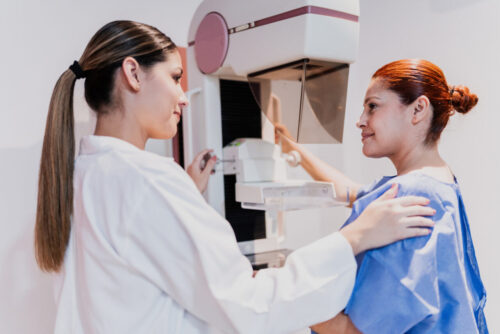Parental Incarceration Leaves an Estimated 2.2 Million Children Without Medical Care
December 15, 2022
Rattankun Thongbun, Getty Images
New research shines a spotlight on the vital need for early structural interventions to address care disparities children with an incarcerated parent face
The Bottom Line
Children who have at least one parent incarcerated are statistically less likely to access healthcare and use the care system, which researchers attribute to barriers such as losing their health insurance and having fewer caregivers to help them make and get to appointments.
Context
Since 1970, incarceration rates in the U.S. have increased fivefold, with more than 2.2 million people incarcerated on any given day — a disproportionate amount of whom are Black and/or economically disadvantaged. This means that more than 5 million children have had at least one parent who lived with them go to jail or prison. Having an incarcerated parent is considered an adverse childhood experience, which puts individuals at risk for poorer health outcomes later in life.
Study Objective
To assess the degree to which having an incarcerated parent has an effect on a child’s healthcare utilization and access.
The Details
Researchers from Boston Medical Center, Boston Children’s Hospital, Ann & Robert H. Lurie Children’s Hospital of Chicago, and Hennepin Healthcare examined the 2019 National Health Interview Survey (Child Sample) to examine cross-sectional associations between exposure to incarceration from a parent or caregiver and access to healthcare and use among children. Survey respondents were asked about preventive care access, unmet needs due to cost, and acute care use over the last year, and then researchers used statistical analyses to determine any changes associated with parental incarceration.
Findings
The researchers analyzed 7,405 individuals and found that 467 were exposed to parental incarceration. Through their analysis, they determined that parental incarceration was associated with an additional 2.2 million children lacking a usual source of care, 2 million with forgone dental care needs, 1.2 million with delayed mental health care needs, and 865,000 with forgone mental health care needs. The findings shine a spotlight on the need for early structural interventions to address these care disparities.
Pull Quote
“Adverse childhood experiences like parental incarceration are not just isolated experiences — they are symptoms of broader structural challenges,” says lead author Rohan Khazanchi, MD, a pediatric resident in the Boston Combined Residency Program comprising Boston Medical Center and Boston Children’s, in a press release. “Health and social service organizations should address parental incarceration as a public health issue by developing programs to support families during and after periods of parental incarceration, so that children aren’t penalized. Leaders in the criminal-legal system should also recognize the impact of their sentencing decisions on whole families and identify opportunities to minimize the negative consequences for children — including, when possible, decarceration.”


